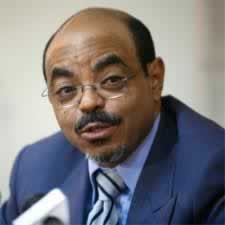Regional leaders permanently disband Sadc tribunal

decision taken last year to permanently disband the bloc’s tribunal.
Sadc Ministers of Justice and Attorneys-General were directed to negotiate a new protocol to reconstitute the tribunal, which will have a fresh mandate.
The new regional court’s jurisdiction will be confined only to advisory interpretation of the Sadc Treaty and any other protocols that may be negotiated among member states.
Justice and Legal Affairs Minister Patrick Chinamasa said: “The (Sadc) leaders resolved that the decision they took last year should hold and that decision was that the
Sadc Tribunal is disbanded . . . completely disbanded.
“The Summit resolved that the Ministers of Justice and Attorneys-General should negotiate a new protocol and the jurisdiction of the new tribunal to be reconstituted will be confined only to advisory interpretation of the Sadc Treaty and any protocols that may be negotiated among members. In other words, the jurisdiction is going to be confined only to any disputes arising between member countries with respect to the interpretation of the Sadc Treaty and any Sadc protocols.”
Also see
He said Sadc adopted the decision following complaints by Zimbabwe over the previous tribunal’s rulings that sought to nullify the revolutionary land reform programme launched by the Government at the turn of the millennium.
Minister Chinamasa said a new date would be set for Ministers of Justice and Attorneys-General to meet on the new tribunal.
“We have a whole year to deal with that. We have to make a report for the next Sadc summit that meets in Malawi next year,” he said.
The previous Sadc Tribunal courted controversy when it nullified the land reform programme and handed down judgments that were in conflict with Zimbabwe’s constitutional position on land reform.
Some 79 white former commercial farmers led by the late Mike Campbell, took their cases to the tribunal, which was based in Windhoek, Namibia, in a bid to reverse the agrarian reforms after the State acquired their farms for redistribution to the landless majority.
MDC negotiator Ms Priscilla Misihairabwi-Mushonga described the adoption of the disbandment as positive.
“As a party, we agree with the summit and the reasons advanced for its disbandment. The issue did not have anything to do with Zimbabwe although Harare became a case study,” she said.
“Even countries like Botswana that had ratified it agreed with the reasons. In fact, President (Ian) Khama said he was considering withdrawing the decision by his country to ratify it because he understood the implication,” she said.
Harare West MP Ms Jessie Majome (MDC-T) differed saying the decision was retrogressive. She said it did not make sense to disband a “whole institution” for those reasons.
“It is several steps backwards to the rule of law, human rights, for Sadc and the African Union. It is myopic to dismantle a whole regional institution that has been built over years. It is an abortion of developmental jurisprudence,” said Ms Majome.










Comments